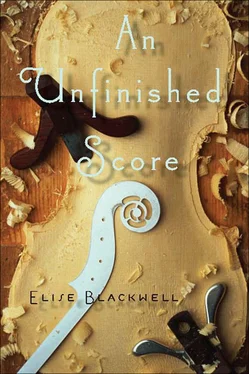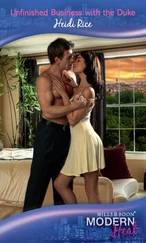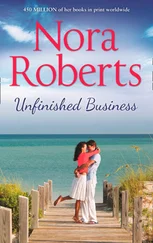“This is where he worked and where you will work, in the conservatory.”
The conservatory .
Alex always called it the library or the music room . His jump in class — a leap achieved partly through self-manufacture but also through marriage — was not singular and clean, though he said he sometimes felt more relaxed with the upper class than the middle. “So many eccentrics, and such good educations.”
Despite his soft spot for Verdi, Alex mocked the composer’s self-proclaimed anti-intellectualism. Verdi, born five months after Wagner, writing at the age of fifty-six: “There is hardly any music in my house. I have never gone to a music library, never to a publisher to examine a piece. I keep abreast of some of the better contemporary works not by studying them but through hearing them occasionally at the theater.” He insisted, “I am the least erudite among past and present composers.”
“Can you imagine admitting that, much less bragging about it?” Suzanne once asked, Alex’s hand on the small of her back as she lay on a hotel bed. Now she can remember the bed, what the room looked like, but not which city they were in.
“Sure,” he answered, hand following the curve, “because he was lying through his teeth.”
Olivia shows Suzanne every room except the son’s closed bedroom. There are many, including three bathrooms. Each room is clean, airy, and decorated with both taste and real money. They reach the far end of the house. “Our bedroom.”
Suzanne absorbs the high queen-sized bed, the matching nightstands, the reading chair and ottoman, the elaborate draperies — a cool green. Alex and Olivia’s bedroom . Suzanne points to the head of the bed, to the pillow on left-handed Alex’s preferred side.
“I suppose you’ve washed the sheets.”
“What a peculiar thing to say.” Olivia runs her hand over the bedspread, back and forth, the bed high enough that the action does not require her to bend. “Do you imagine that I’m not in the habit of washing the sheets every week?”
“His smell,” Suzanne whispers. “I was hoping there would be something with his smell.”
Olivia looks at her, her expression changing but unreadable. Her eyes don’t exactly narrow, but they seem to pull long, as though she has control of facial muscles that other people cannot access. “I was about to wash his pajamas when I heard the news on the radio,” she says, her gaze cast to her long-fingered hand. The nails are manicured but unpainted. “That’s how I found out, you know, on the radio.”
Suzanne feels no need to say, “Yes, I know what that’s like; me, too.” She is wondering if the radio is better or worse than any other way, if the form matters even a little.
“So I stopped. They were right over the machine, and I almost dropped them in the hot water, but I didn’t.”
“I want the shirt,” Suzanne says. “You have everything else left of him. I want the shirt.”
Olivia lifts her gaze, and now Suzanne can read her expression. Hatred . “I have everything because I was his wife. You have nothing because you were not.”
“I want the shirt,” Suzanne repeats.
“I’ll let you have it after you finish the arrangement. A performance-night gift. No flowers for you.”
“Performance night,” Suzanne says, registering what Olivia is asking her to do, her dread swelling into something nearly unbearable.
Olivia’s hand now sits still on the bed where she slept with Alex for more than twenty years. “You will be like Clara Schumann for Brahms, playing his music for the public.”
Suzanne spends most of three days in the conservatory. She spends most of three days working through the viola part section by section, deciphering each movement phrase by phrase and then stringing them like beads. She spends most of three days in the music, most of three days trapped in Alex’s mind. Unlike her nightmare, it is not damp, dark, and terrifying. But neither is it familiar or expected; it offers none of Alex’s comfort.
Brahms , Olivia said, and Brahms is what Suzanne would have expected from Alex. Brahms, dismissed by many contemporaries as stodgy, a holdover who would be flattened by the Wagnerian train to the future. Brahms, a brutal tongue and sour disposition hiding a deep generosity for those he respected. Brahms, brilliant but conservative in his use of counterpoint and sonata form, ever skeptical of program music, a man who never wrote an opera. Brahms, suspicious also of virtuosity, beloved by musicians instead of by fascists, whose music transcended its moment and outlasted its critics by centuries. Brahms, temperamental and emotionally difficult in life, elegant and restrained in his music. Sublime Brahms .
Yes, a reincarnation of Brahms would have made sense from Alex, but this difficult music is nothing like Brahms. In Alex’s concerto, emotion is barely restrained, virtuosity is required, and a story seems to thread the movements. Almost always when Suzanne works with the score, her chest feels tight, constricted. She grows breathless quickly with the physical exertion required to play the piece and suffers mild tinnitus when trying to fall asleep at the end of each long day.
In this discomfort, painstakingly though sometimes with bright flashes of insight, Suzanne tries to decipher Alex’s intentions in the black marks on paper. She tries to discern which sections are joyous and which written out of pain, which reflect desire and which satisfaction. If she can put them all together, she thinks — get each segment right and play the piece through — then she will have Alex’s narrative of their love affair to twine with her own. Then maybe the story will become whole, the larger sum of her memory fragments, the parts of the story she failed to understand. Through Alex’s music, she will know what happened to her.
On the second morning, Suzanne rises early and walks through the damp neighborhood, looking at the wide floral borders surrounding homes centered on their own half-acre or more. A man in a robe waves to her as he bends to pick up his paper. A woman runs past her, next a jogging couple, and Suzanne turns around.
Even at the front door she can hear the piano: Liszt’s Csárdás macabre , its clashing harmonies, desolate sonority, bizarre parallel fifths. Written late in his life, a time when he began to fear death, which had already come to his son-in-law Wagner. A time when he told the last of the many women who befriended him, “I carry a deep sadness of the heart which must now and then break out in sound.”
Suzanne guides the door gently closed behind her, treads softly through the foyer and down the hall. Holding back, nearly holding her breath, she watches Olivia play. Some people assume that Liszt’s retreat from virtuosity makes his later music easier to play, but Suzanne knows well from piano-playing friends that this is true only superficially. Olivia’s back and neck curve — regal posture gone — bringing her face close to the keys. Her hands are dramatic, lifting high and striking with surprising strength. A piece of hair sprung loose from her chignon stripes her face, stuck to her cheek with the sweat of her effort.
Suzanne waits after she finishes the seven-minute piece, waits to see if she will begin something else, but Olivia closes the piano, tucks back the errant strand of hair, straightens her spine, sets her hands lightly on her thighs, and turns to look out the window at the dewy yard, the morning sun glancing off her small piece of the huge lake.
“Your talent is exceptional.”
Olivia doesn’t startle but turns slowly, as though she already knew Suzanne has been standing behind her. “My talent isn’t small, but it’s certainly not exceptional. You know how much talent is out there, how little of it is truly special.”
Читать дальше












